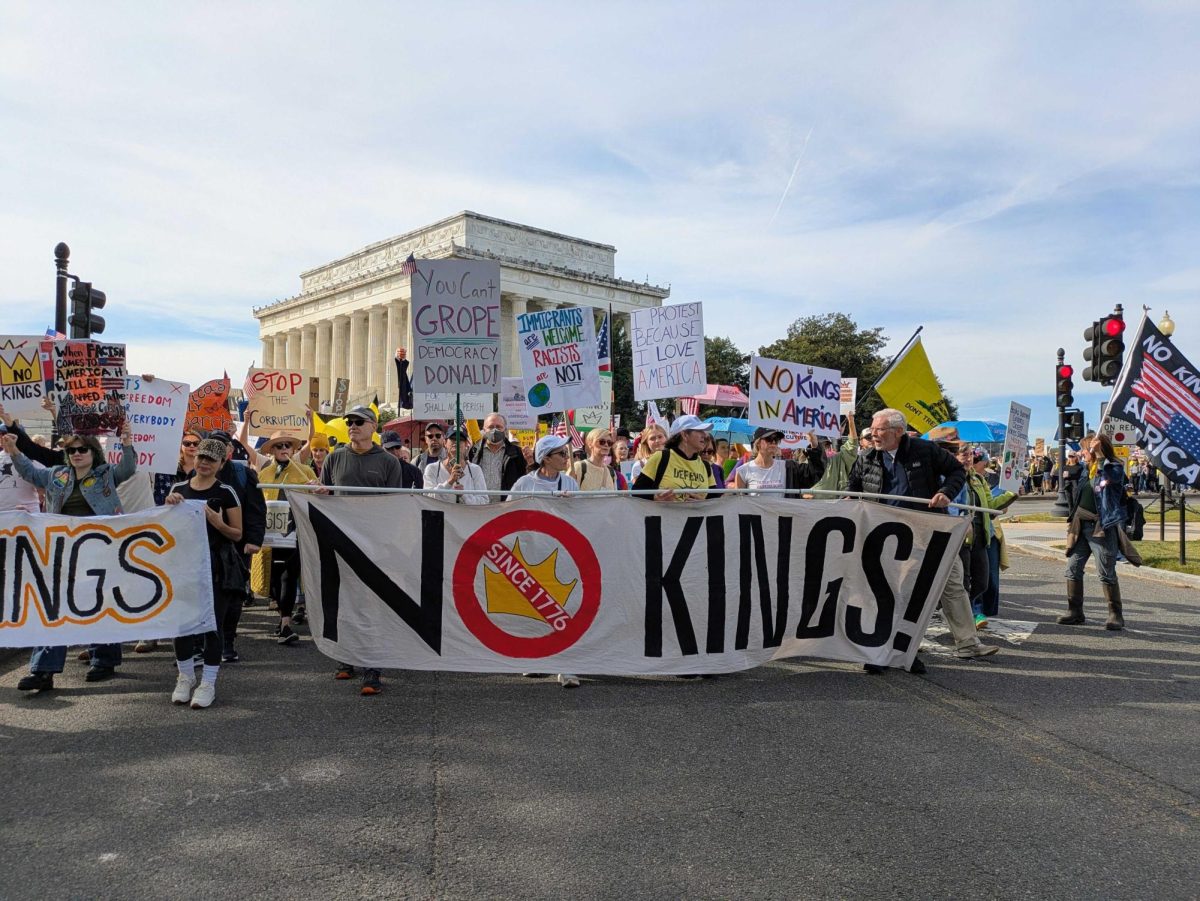Learning bravery and vulnerability as a leader
February 16, 2021
In 10th grade, I had an English teacher who gave my class a particularly interesting writing assignment: “Write an essay about the most influential leader in history.” Now, it wasn’t necessarily interesting because of the prompt, but rather for the answers it solicited.
My classmates wrote about Abraham Lincoln, George Washington, Christopher Columbus or really any white male who benefitted off the white savior trope.
I, however, wrote about Adolf Hitler. I chose Hitler because I honestly couldn’t think of someone who fit the “most influential” title better than someone who pulled off a genocide while holding political office.
Instead of focusing on how power could be used for good, I looked at how it was used in general. My classmates became overwhelmingly skeptical of my mental well-being that day, but I got an A+ on the assignment, so my need for validation through academic success was fulfilled and the rest didn’t matter.
As I fall into leadership roles, I find myself acutely aware of how well I’m doing as a leader. The thing is, I’m constantly doubting my abilities. In one of my recent attempts to become a better leader, I started reading “Dare to Lead” by Brene Brown.
In it, she talks about how when we define ourselves by what other people think, it’s hard to be brave, but when we stop caring altogether, we become too armored for authentic connection.
I think it’s safe to say that Hitler was not on the “too caring” end of the spectrum.
When I read this thought by Brown, I thought to myself, “What the hell does it mean to just be brave?”
One situation stuck out to me. A few weeks ago, I attended a virtual theater festival. I’m not an avid theatergoer or even a novice film critic. I did, however, want to expand my knowledge about writing for theater so that I am a well-rounded journalist.
While I was rehashing my day to my best friend, I mentioned that we went around in the Zoom call, reading our 1,000-word opinion pieces and gave each other feedback. This is a common practice in theater, but for my best friend who is also a journalist, the thought of watching people immediately react to your writing is terrifying. She told me I was brave for doing that, but here’s the odd part: I didn’t even hesitate to say I loved it.
In 2012, Google started its journey to understanding team effectiveness through a study known as Project Aristotle. In that study, researchers uncovered the idea of psychological safety – when team members feel safe enough to take risks and be vulnerable in front of each other. It is a space where people know they won’t be judged or shamed for speaking up.
If psychological safety is so important, though, it begs the question of what support looks like from me.
If I’ve learned anything from my experience so far, it’s the confirmation that being vulnerable in the field can be detrimental to your job. The same goes for doctors, teachers, astrophysicists, you name it. Being vulnerable is essential to being a leader, though.
Providing leadership and management to team members is different from interactions in the field. So how do I make those connections the most meaningful?
Last week I started to form my answer. Monti Washington came to Gannon — I don’t know, maybe on a white cloud with angels singing behind him, or maybe just by plane, but I had the honor of attending his leadership workshop on campus.
He preached about courage as if it were a sermon, and I listened. That’s the best part, though. At the end he emphasized one point about growing and expanding our minds to better lead those people around us: leaders listen.
It was comforting to hear that sometimes being present with another person is the best leadership there is because oftentimes, that’s what I find myself doing. There’s no situation I ever feel like I’m in control of, but that’s the point. Being brave is exploring territory you have no way of controlling.
Right now, we all are in uncharted territory, but we’re all growing in it too. I hope anyone reading this can take comfort in the fact that we are all leaders right now.
This is one of the most influential parts of history, and I hope that one day, our leadership will be what stood out. It may not always be easy, but I’m thankful for the position I have.
I am going to keep learning and loving, and I invite you all on that journey with me.
CHLOE FORBES





